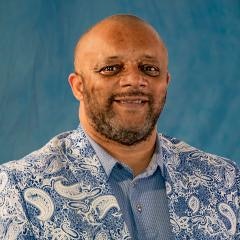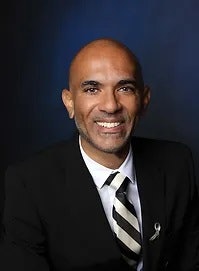America has woken up to the unique benefits of HBCUs for Black students. Enrollment is up, and, after a century of underfunding, some money has been coming in, from sources both public and private. Suddenly, HBCUs have cultural cachet, thanks to celebrities like Beyoncé, who honored the schools in her 2019 concert documentary Homecoming, and Deion Sanders, who brought Jackson State University’s football team to national prominence before departing last December. Now, a new working paper from the National Bureau of Economic Research, a nonprofit think tank, delves into the many advantages that HBCUs offer and what predominantly white institutions (PWIs) can learn from them when it comes to helping Black students.
The working paper marshals a raft of evidence showing that, despite their historical lack of resources, HBCUs do better for Black students than PWIs in a variety of ways. This is especially remarkable considering that the Black students who attend HBCUs are more likely to have lower academic qualifications and to be from economically disadvantaged families than Black students who attend PWIs. The report cites evidence that, adjusting for this difference, African American students are up to 33% more likely to graduate than African Americans at similar non-HBCUs. Other research referenced in the paper shows that for Black students with initially low-test scores, attending an HBCU is associated with doubled graduation rates.
The advantages appear to extend past graduation. Black students who attend HBCUs receive higher wages and are likelier to experience upward mobility. African Americans from HBCUs scored higher than PWI peers on measures of self-esteem and Black identity and were also more likely to vote. There are even physical benefits—Black HBCU grads were less likely to have warning signs of poor cardiovascular health.
The report also explored how HBCUs manage to do this—to find the recipe of their secret sauce, so to speak. One ingredient, the report finds, is HBCUs’ unique mission—not just to confer degrees, but to build individual and community prosperity, with an eye towards social justice.
 Dr. Gregory Price, a professor at the University of New Orleans, and co-author of the working paper
Dr. Gregory Price, a professor at the University of New Orleans, and co-author of the working paper
For Black students, there are additional benefits to a predominantly Black environment.
“HBCUs provide a bulwark against the racism that Black students experience in America today,” said Dr. Robert T. Palmer, chair of the educational leadership & policy studies department at Howard University. “Black students at HBCUs can really be themselves and tap into their potential to succeed academically.”
Although the successes of HBCUs are significant, there aren’t nearly enough of them to support all Black students. So, it is important that PWIs can learn from what HBCUs do. Of course, not all elements of the HBCU experience are replicable at PWIs—and not only because they lack a majority of African Americans.
 Dr. Angelino Viceisza, an associate professor at Spelman College and a co-author of the working paper
Dr. Angelino Viceisza, an associate professor at Spelman College and a co-author of the working paper
The report recommends that PWIs and HBCUs host faculty exchanges and work together on programs targeted to help under-represented minorities, citing the Fisk-Vanderbilt Master’s to Ph.D bridge program as an example. The authors also suggest offering co-curricular experiences that allow Black students to work on research that interests them as well as social justice and activist projects and designing parts of the curriculum and first-year experience to focus on Black culture, offering Spelman’s “African Diaspora and the World” sequence as a model.
Although Palmer said that he loved the recommendations from a theoretical perspective, he thought they might be easier said than done.
“We have to keep in mind the current political climate, particularly when you see what’s going on in Florida and Texas,” he said, referring to bills that would restrict DEI efforts in those states. “It really undercuts PWIs from doing that work to support their Black students.”
The report’s final suggestion might also be its toughest to achieve, although HBCUs have benefited financially from recent federal policies, and some have gotten splashy private gifts as of late, they still need more funding. And it’s not clear that the current vogue for HBCUs vogue will last.
“It’s already starting to wane,” said Price.
However, Palmer thinks that the paper could be helpful in raising money.
“Any information that we can put in front of funders to talk about the importance of HBCUs can be used to encourage folks to be more supportive,” he said.
Jon Edelman can be reached at [email protected]





















